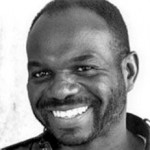Raven Lopez is spending the first week of her summer vacation like lots of teenagers—on the couch, with the phone, gearing up for a summer job. But the 16-year-old New Yorker is even more relieved than most to be putting her sophomore year behind her, having closed it out last week with a dramatic press conference denouncing the months of bullying she endured at Belmont Preparatory High School for being HIV positive. “I just couldn’t take it anymore,” says Raven.
The harassment started last fall, she says, but the last straw was when some guy shouted “Raven has the monster” last week during lunch in the school cafeteria (“monster” being slang for the HIV virus). “I was like, ‘It’s not a monster. Do I look like a monster?’ ”
Raven’s mother, Michelle Lopez, an outspoken HIV activist who does AIDS outreach at the Community Healthcare Network, decided it was time to get serious when Raven called her crying. “Is it OK to harass someone because they are fat or because they are black? No,” says Michelle, who’s also positive. “It should be the same with HIV.”
The very next day–which happened to be Raven’s 16th birthday—a crowd of about 70 people gathered in front of Belmont’s stately white brick building on Fordham Road in the Bronx, carrying signs that read “Hate Is the Monster” and “Stop HIV and AIDS Discrimination.” The press showed up, too, and Raven made the pages of Newsday.
It was hardly Raven’s first moment in the sun. Having inherited her mother’s flare for PWA empowerment, she’d made speeches in the past about her own HIV status and even appeared in the pages of POZ. At Belmont this year, the publicity seemed to encourage her tormentors—to the point that she and her mom began applying for a transfer.
Michelle says she had phoned principal Garner Bass last fall to complain about the way other students were bothering Raven—one boy threatened her physically. Michelle offered the expertise and resources of some Bronx area AIDS service organizations for a schoolwide program of HIV education, free of charge. “I didn’t want money,” says Michelle. “I was going to educate about HIV and stigma and basic awareness.” But Bass never responded, and the school never did anything in particular to educate the student body or support Raven herself.
Principal Bass declined a POZ interview, instead releasing this statement through Department of Education spokesperson Margie Feinberg: “According to the principal, [June 12] was the first time that he or anyone on the staff were told about any type of harassment against the student. He took it very seriously, and it is under investigation by the school.”
HIV positive school kids have had it rough ever since 14-year-old Ryan White was barred from his Indiana elementary school in 1986. HIV classroom decorum has come a long way since then, but in some cases not far enough. “When an HIV positive student is being harassed by classmates, it is important to tackle the issue head on,” says Shawn Decker, who was expelled from his Waynesboro, Virginia sixth-grade class in 1987 for being HIV positive and now travels the country speaking about the virus. “They should bring in AIDS service organizations to do education and offer handouts.”
That’s exactly what Michelle has in mind for New York City schools. She’s trying to meet with City Council members and the schools chancellor about implementing an HIV curriculum that tackles matters like HIV stigma, not just prevention. “Families need to know that if they are in this kind of situation, the school will be supportive,” says Michelle.
Raven’s school may not have stepped up, but her peers have. The day after the press conference, students swarmed her in the halls. “Everyone came up and gave me a kiss and said ‘Baby, you are brave. You are our role model,’” she says.
It was a good send-off for someone planning to spend the summer honing her activism skills in a paid internship at the Hetrick Martin Institute, which provides programs for kids at risk of discrimination and harassment, especially LGBT youth. That and looking for a new school.
School Daze: A Bronx Girl Speaks Up






Comments
Comments